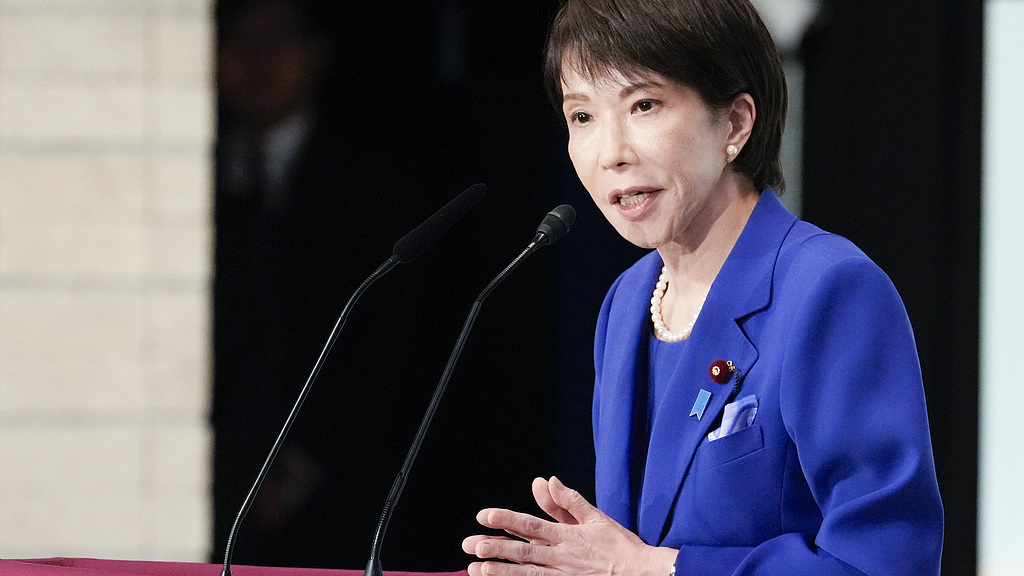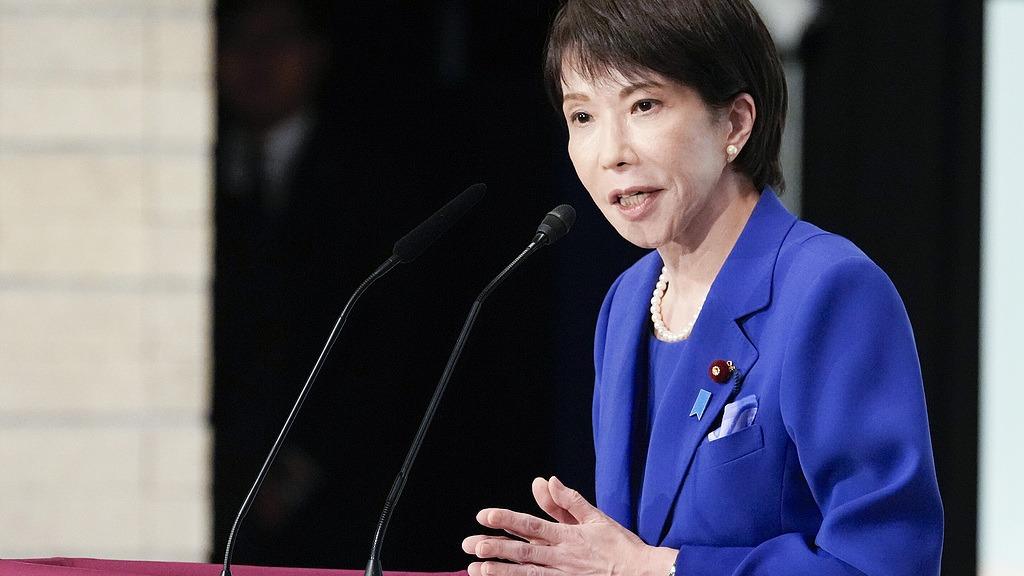
Sanae Takaichi delivers a speech in Tokyo, Japan, October 4, 2025. /VCG
Sanae Takaichi is likely to become Japan’s first female prime minister after winning the race on Saturday to lead the ruling Liberal Democratic Party (LDP).
Takaichi graduated from Kobe University with a degree in business management. A protege of the late Shinzo Abe and long-time advocate of the former prime minister’s “Abenomics” stimulus policies, Takaichi has called for higher spending and tax cuts to cushion rising cost of living, and has criticized the Bank of Japan’s decision to raise interest rates.
Below are excerpts of what some analysts have said to Reuters:
Takahide Kiuchi, Executive Economist, Nomura Research Institute:
Takaichi adheres to the traditional reflationist view that the government should determine the broad direction of monetary policy. As such, there is a possibility she may intervene in the Bank of Japan’s policy operations going forward. The interest rate hike expected in October — already priced in by about 60 percent of the market — may be delayed by the BOJ, as a failed hike could invite political interference.
Hiroki Takei, Strategist, Resona Holdings:
On the policy front, Takaichi has strongly emphasized economic growth, which could benefit sectors such as semiconductors, artificial intelligence (AI), space-related industries, defense enhancement, and national resilience.
The fact that she is the first female president of the LDP could strongly signal change to investors. If foreign investors, anticipating structural reforms, begin buying physical shares, a moderate medium- to long-term uptrend could be expected. However, if the rally is led by short-term players through futures trading, it could reverse quickly, so caution is warranted.
Tomohisa Ishikawa, Chief Economist, The Japan Research Institute, Tokyo:
Takaichi talked about “responsible expansionary fiscal policy.” The question is whether this approach can achieve both restoring fiscal health and economic growth. I’d like to hope there’s greater consideration for restoring fiscal consolidation than in the past.
That said, she has said that deficit-financed bonds are also among the options, so in terms of continuing “Abenomics,” I think we must also be mindful of the risk of fiscal expansion. I do think it’s become harder for the Bank of Japan to raise interest rates.
Ultimately, if “responsible expansionary fiscal policy” means money flows into high-growth sectors rather than simply being handed out, then stocks would rise and the yen wouldn’t weaken excessively.
(With input from Reuters)


AloJapan.com